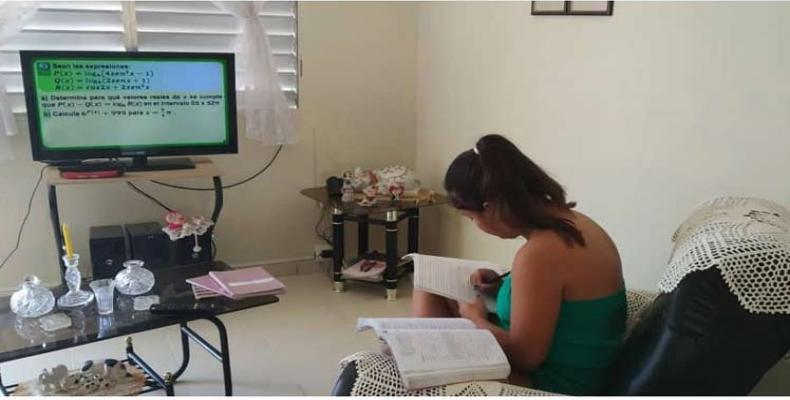Havana, July 17 (RHC)-- Cuba presented during a virtual forum of the Latin American Parliament (PARLATINO) its experience in the use of television to guarantee the continuity of the educational process in the midst of COVID-19.
At the meeting of the Commission of Education, Culture, Science, Technology and Communications of PARLATINO, the parliamentarians of the island referred to the consequences of the digital divide in the educational sector during and after the health crisis.
Cuban Deputy Miguel Enrique Charbonet, president of the Commission, lamented how in comparison with other areas of the world, Latin American and Caribbean countries still lag behind in terms of broadband Internet connection.
At the virtual meeting, in which an expert from the United Nations Educational, Scientific and Cultural Organization (UNESCO) participated, the legislators approved the drafting of an inclusive and diverse law that will help reduce the differences.
To avoid such inequalities, from March to the end of June, the Cuban Ministry of Education decided to continue the school year through television, a device present in most households in the country.
For its part, another group of Cuban deputies participated - also virtually - in the joint session of the Energy and Mines, Environment and Tourism Commissions of PARLATINO to analyze a bill on electric mobility.
This proposal is aimed at mitigating the consequences of toxic gases, a practice already employed in countries such as Mexico, the Dominican Republic and Chile to prevent pollution generated by vehicles that use fossil fuels.
Deputy Madga Ileana Pérez Matos, vice-president of the Industry, Construction and Energy Commission of the National Assembly of People's Power, denounced how the variations in oil prices and the U.S. blockade keep the economic development plans in constant tension and conspire against Cuba's energy sovereignty.
However, Pérez Matos said that the first all-electric bus has been circulating in Havana since late 2017, and in 2019 39 hybrid buses were incorporated into public transportation, a technology that saves fuel and generates less pollution.
He also highlighted the upcoming use of electric tricycles as taxis, a project sponsored by the United Nations Development Program.


